High School Voter Registration Heroes
What can you do to help youth civic engagement? Stories from some of our amazing supporters provide inspiration.
Last month I wrote the post, “What can I do to help?” in response to questions from supporters who see our data about low registration rates for 18-year-olds and who want to know what they can do to help solve the problem.
Today I’m spotlighting some real-life examples of students, educators, parents, and community volunteers who are helping to promote youth political participation and make voter registration part of high schools in their area.
Diego
Diego, a college senior, was born and raised in Santa Ana, California. He wanted to promote youth civic engagement in his community and turned to Google, which led him to us, and the light bulb went off. He could make a difference.
He applied for a grant and created a project Santa Ana Youth Vote (SAY Vote). SAY Vote has partnered with the Santa Ana Unified School District and is working with professors at Santa Ana College to increase high school and college voter pre-registration and registration rates. Last month, the Santa Ana School Board passed a resolution recognizing High School Voter Education Weeks, partnering with SAY Vote to increase voter education and pre-registration efforts bringing voter registration to high schools across Santa Ana. Diego is now looking to expand his work to neighboring cities.
Mike
Mike is a public health professional in Atlanta. He heard about our work and saw the opportunity to make voter registration part of high school life in his area. He went straight to a DeKalb County school board meeting, gave public comment, and lo and behold, it worked. The board and Superintendent heard him, and agreed he was right. He sought the additional partnership and leadership of the John and Lillian Miles Lewis Foundation, and with their added inspiration the district has launched a county-wide initiative to help eligible students register and to get them to the polls during the state’s early voting season. The Foundation then invited The Civics Center to present at their recent high school civic engagement forum.
Peter
Peter is a retired lawyer, and before that was a high school assistant principal for social studies. He read our report about low levels of youth voter registration in New York City and about a new law to require high school districts to implement voter registration.
Like Mike, he also took the next step. He persuaded the persuaded the Task Force on Civic Education of the NYC Bar Association, one of the most prestigious and active in the country, to form a Subcommittee to work on the issue. The result is formal guidance from the NYC Bar association assisting school districts in how to comply with the law.
Annika
Annika has been involved with The Civics Center almost since our founding. In 2019, as a high school junior, she participated in our Future Voters Action Week program, learning public narrative skills and how to run a high school voter registration drive. She continued as an assistant on numerous projects through last year, writes for her college political magazine (including about high school voter registration), and was one of the people whose how-can-I-do-more question prompted me to write What Can I Do To Help, Part I. Now, she’s taken one of the prompts and put it into action: writing to the head of her high school, encouraging the school to make voter registration a tradition, and offering to help. See an anonymized version of her note below as an example. For other recent grads who want to do something similar, write to us at info@thecivicscenter.org, and we’ll put you in touch with Annika, who has offered to help.
Therese
Therese is retired university administrator from Philadelphia and a co-leader of the Elders for Sound Democracy Project of the Elders Action Network. Inspired by our efforts to promote voter registration to youth and parents through postcards, she offered to work with others at EAN to manage large segments of the administrative effort, distributing instructions and addresses to volunteers and answering their questions to get them up and running. Our post-carding effort, which has now reached more than 100K households, and engaged hundreds of volunteers, is set up well to expand and continue.
Elizabeth & Matt
We also wouldn’t be where we are in post-carding without Elizabeth, who guided us in getting our store up and running and has offered helpful encouragement time and again. A few days ago, she wrote with this update about her husband, Matt, and his colleagues:
My husband's office is writing Civics Center postcards. Wednesday night was their first gathering. They felt so good about it, they are going to keep ordering cards and writing up to the deadline!
He reports everyone enjoyed the camaraderie/community of the project, doing something meaningful for a good cause - and that other people in the office poked their heads into the conference room where they were writing and wanted to write, too. So they will be continuing on!
Here are photos of how they are doing it:
What do all these efforts have in common? They are all real people starting in their own communities, understanding the need for change, and using their own strengths and networks to make a difference.
And all of this is happening without TCC having a staff member to manage volunteer engagement. Imagine if we had a fairy godmother who could help us fill that gap!
One way or another, we see the work catching on all over. Their efforts inspire us, so stay tuned for other examples in the weeks ahead.
Please consider donating to The Civics Center in support of our ongoing data and organizing work:
Annika’s letter
Dear [Head of School],
I hope this letter finds you well. As November approaches, I’ve been reading more and more about whether young people will turn out in the election, and the very low registration rates for the youngest voters.
I’m writing to you, now as a senior in college, to express my thoughts on the critical importance of high school voter registration and to suggest ways our school can play a vital role in this process. High school voter registration is an issue deeply important to me. Not only does registering to vote have real impact, but it also forms a habit—it’s the first step in becoming a life-long voter.
I’ve been reflecting on my time in high school and the lessons I learned at [my school]. In APUSH, I learned about the history of America. Women and people of color fought for decades to achieve the right to vote. Now, 60 years after the Voting Rights Act, I’m afraid some of my generation is taking this fundamental privilege for granted by not exercising their power at the ballot box.
The data on youth voter registration and turnout is alarming. As of 2020, only 54% of 18–24-year-olds are registered to vote in our state (see Table 4c). Additionally, only 12.9% of California’s 16- to 17-year-olds are preregistered to vote. These low registration and pre-registration rates often translate to low voter turnout, which diminishes the voice of young people in critical decisions that shape our future.
I’ve realized that many high schools, including ours, don’t include voter registration as part of what every student should know and do before graduating. As a result, many young people are not registered to vote or are unsure of how to do so.
I want to encourage the young members of our community to take part in something outside of our bubble, and in something bigger than themselves. I believe [my school] has a unique opportunity to address this issue.
By implementing comprehensive voter registration programs, our school can:
1. Make lifelong voters: Research shows that voters who register early are more likely to become consistent voters throughout their lives.
2. Promote civic engagement: Registering to vote is often a young person’s first step in active citizenship.
3. Empower students: As we learn to think critically and form our own opinions, registering to vote allows us to exercise our voice in the political process.
In my classes, I was inspired to follow the news, research issues, fact-check information, and form my own informed opinions. These skills are crucial for engaged citizenship.
To address this, I would like to suggest that our school consider:
1. Distributing voter registration forms to all eligible students
2. Helping students organize voter registration drives by providing information and assisting them in their efforts
3. Incorporating more in-depth voter education into the curriculum
The core lesson I learned at [my school] was daring to use my voice. For our generation, voting is our voice. While the nuances of political issues can’t always be captured in a two-party system, the act of voting itself is a profound one. It prompts us to consider what we stand for, what we believe in, and who will best represent our interests and those of our community.
I understand that implementing such initiatives may require effort and resources. However, the potential impact on students’ civic engagement and the strengthening of our democracy is immeasurable.
Thank you for your time and for the lasting impact you’ve had on my educational journey. I would be more than happy to discuss this further or even assist in developing materials or programs if you’re interested! I think about [my school] community every day and hope I can continue to be involved.
All the best,
Annika
Class of 2020





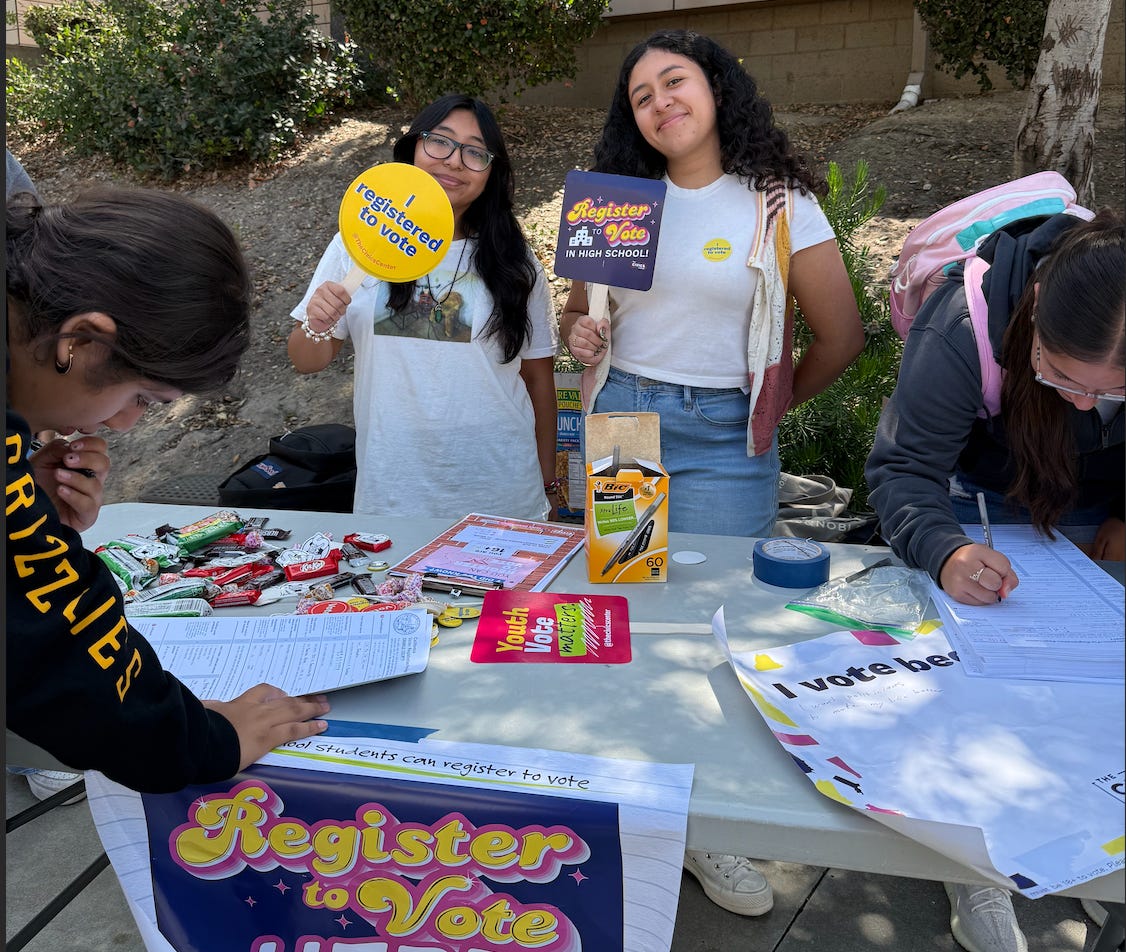
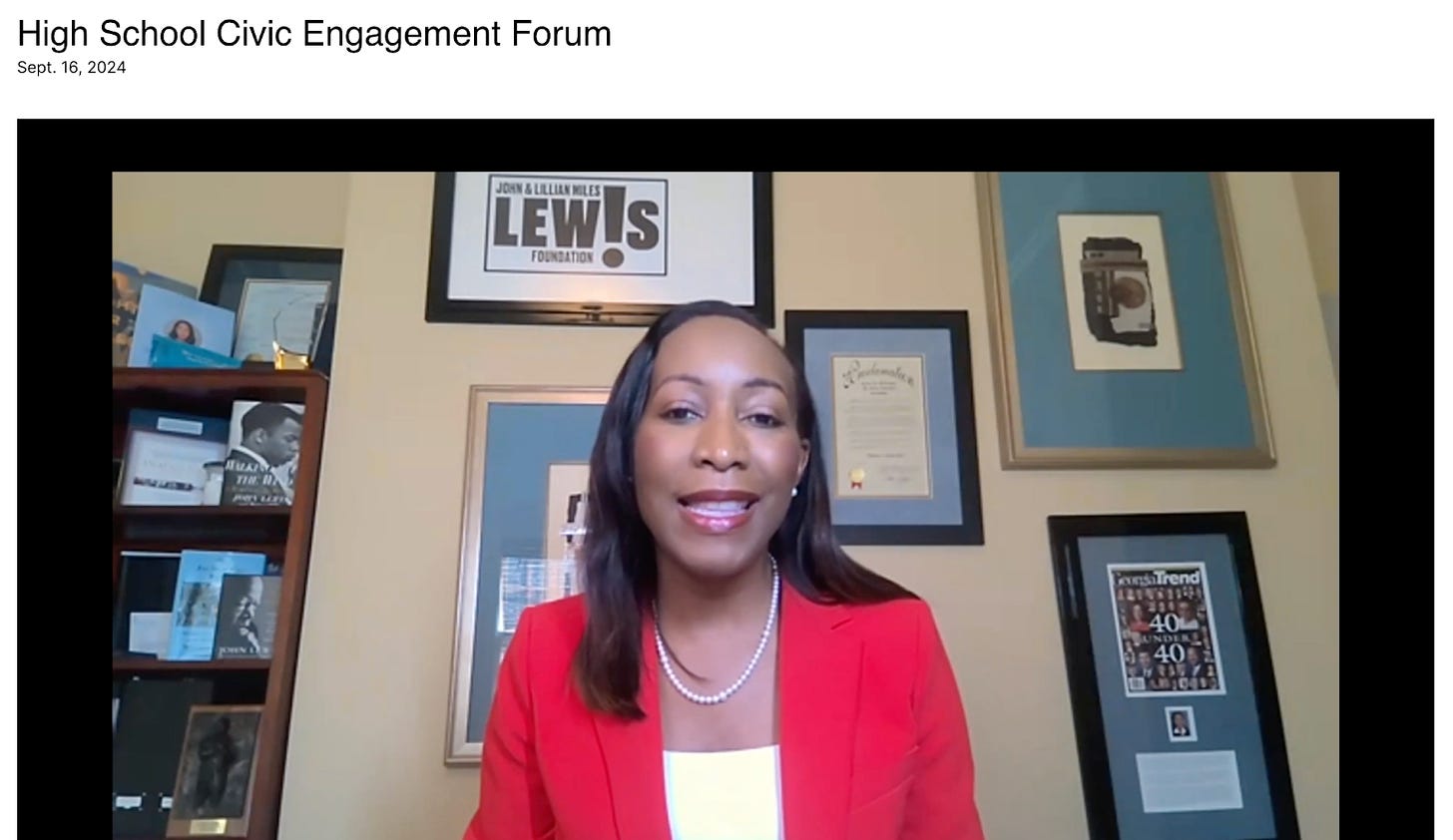
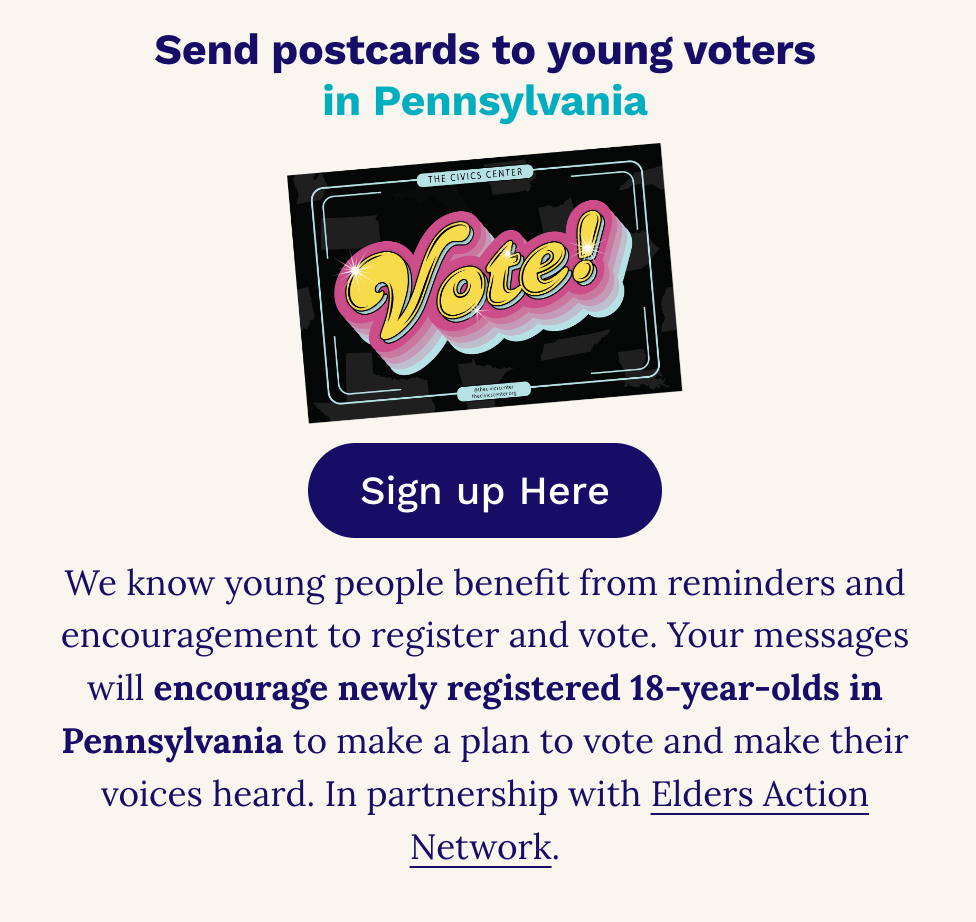
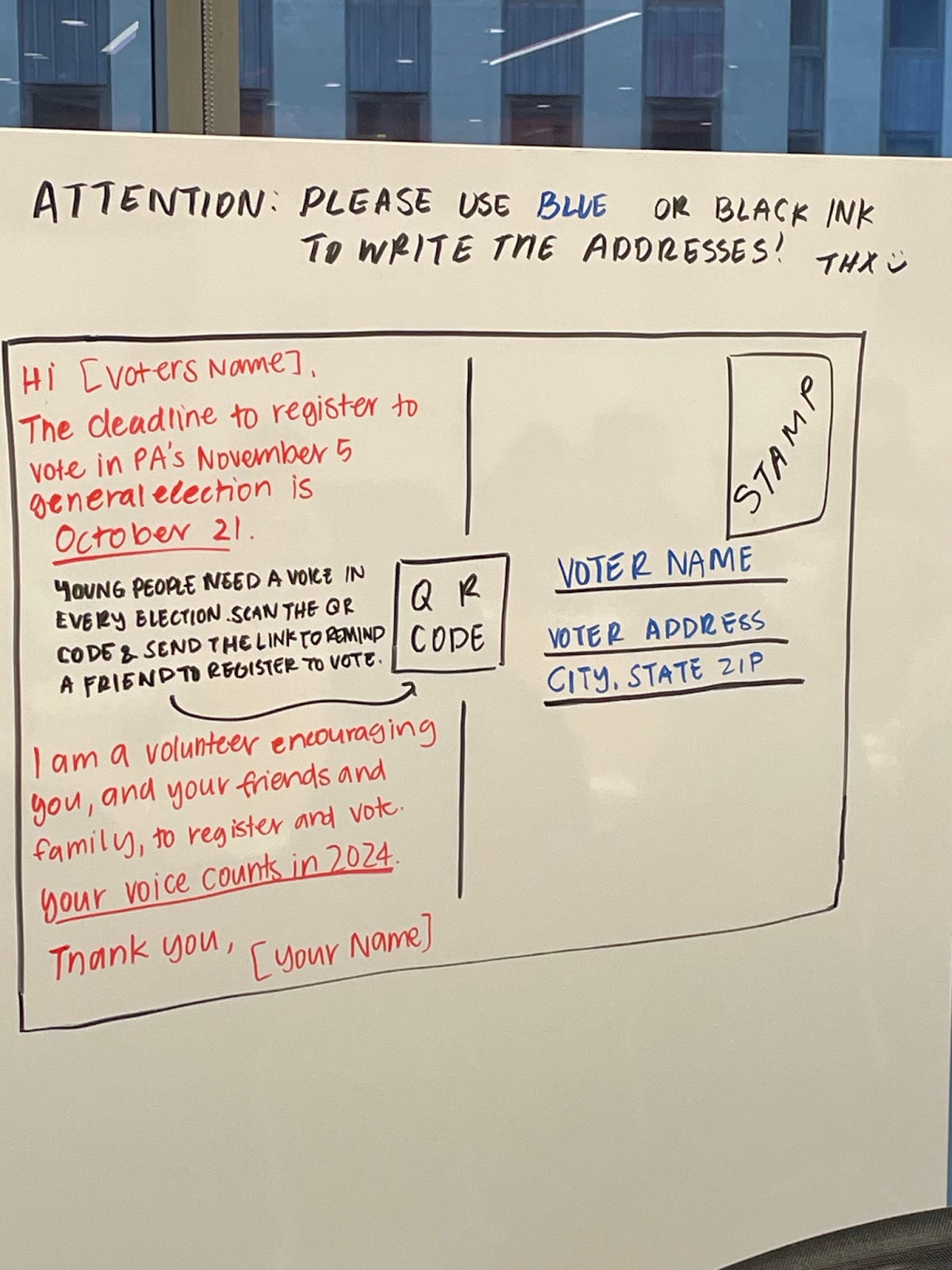
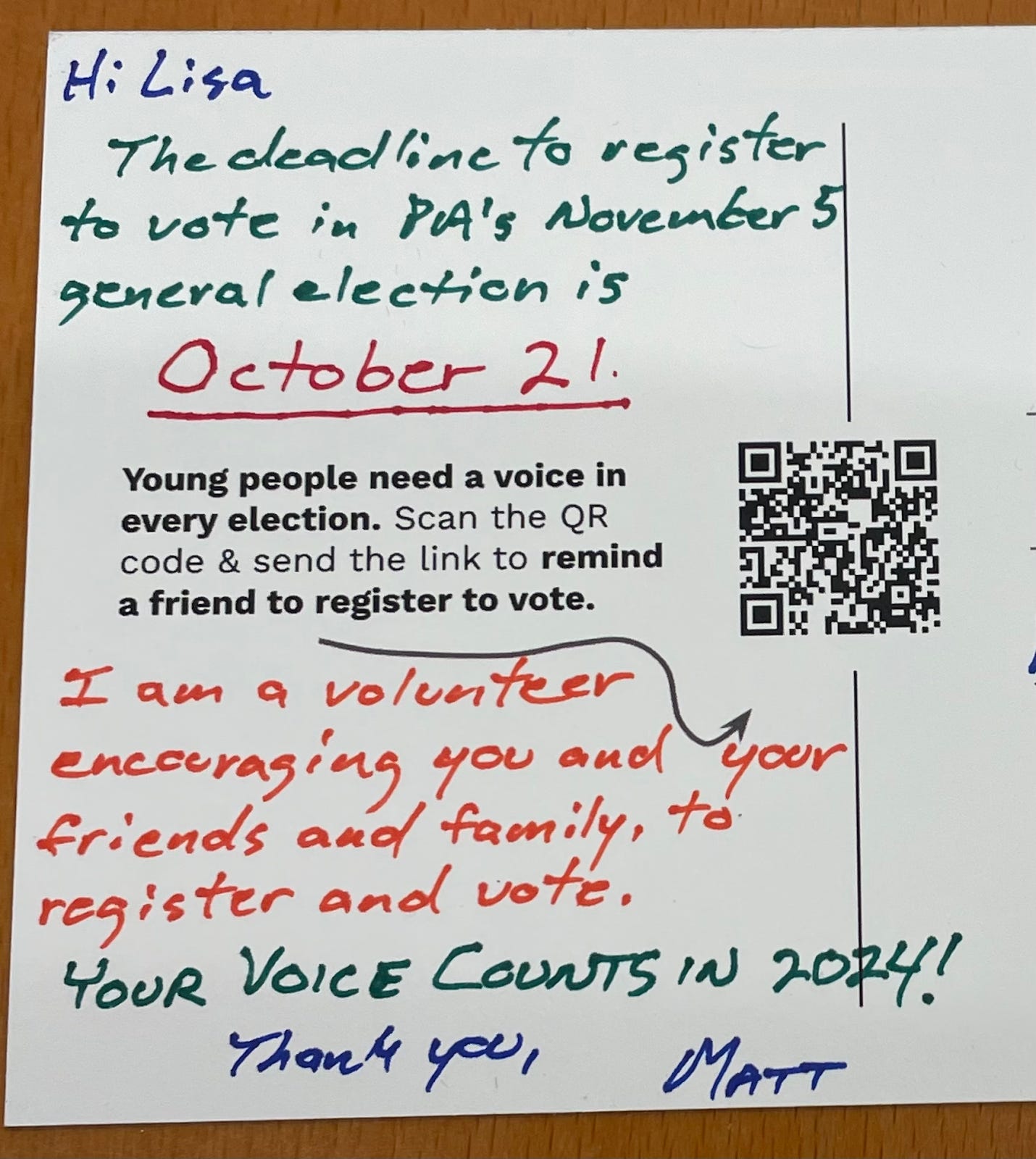
Great to read these stories, particularly since one of them is about my tennis counselor from sleepaway camp in the Adirondacks in the early 1970s, and another is about a good friend and fellow activist.